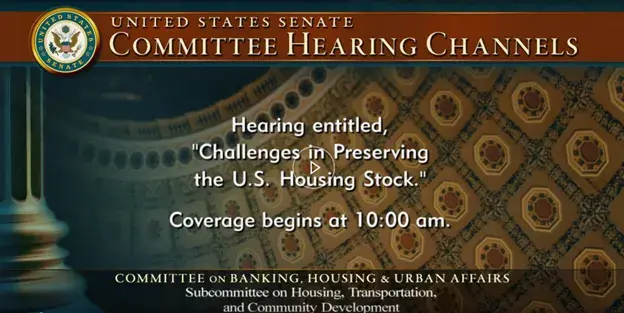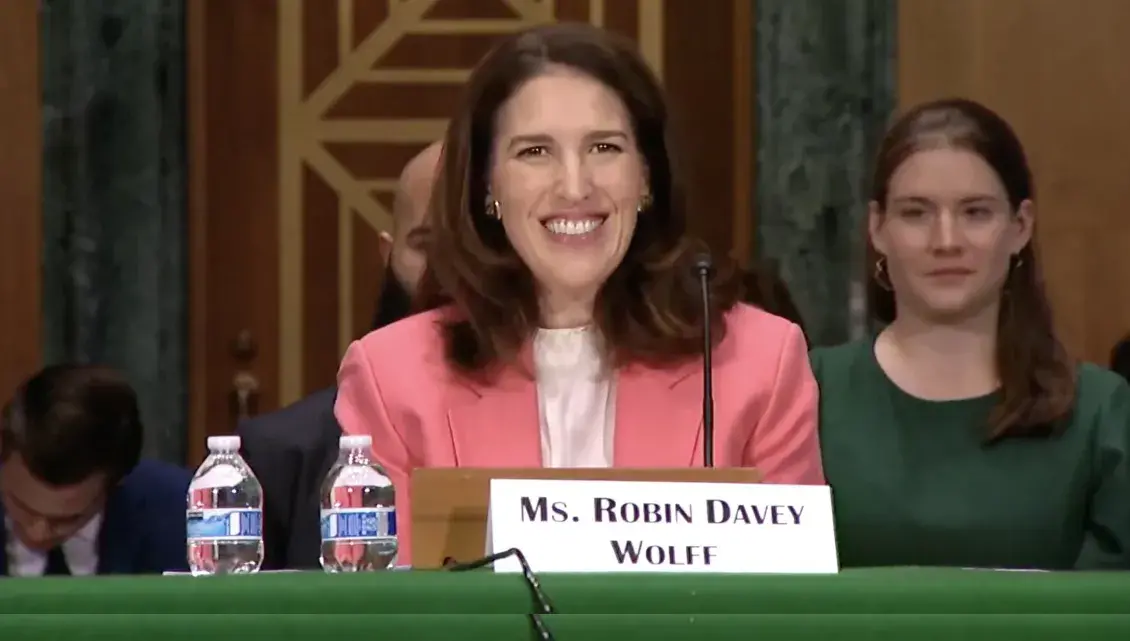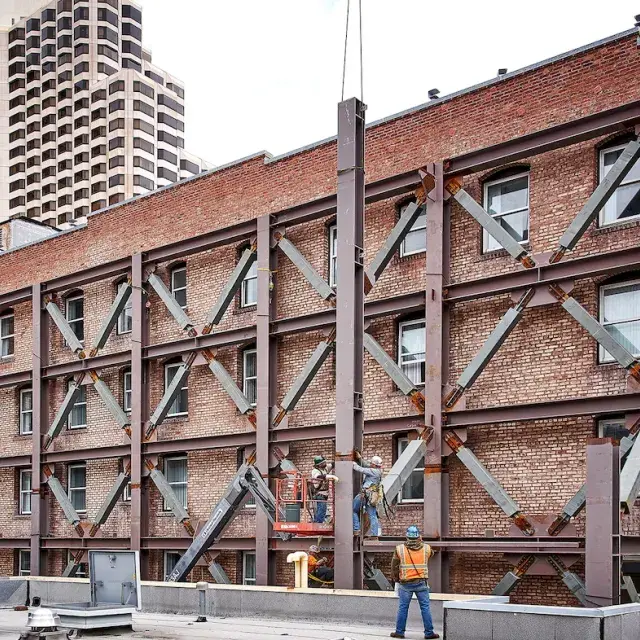On Tuesday, Apri 16, our Rural Communities Senior Director Robin Davey Wolff testified before the Senate's Banking, Housing, and Urban Affairs Subcommittee on Housing, Transportation, and Community Development on Challenges in Preserving the U.S. Housing Stock.
Wolff leads Enterprise's rural preservation work, conducting regional academies and providing one-on-one technical assistance to help save a rapidly diminishing housing stock. She joined Jesse Ergott, president and CEO of NeighborWorks Northeastern Pennsylvania, and Christopher Volzke, MBA, deputy executive director of Wyoming Community Development Authority, in providing expertise on preserving quality, affordable homes across the country.
In her written testimony, Wolff emphasized five key points:
- The need for housing preservation
- The challenges communities across the country are facing as they work to preserve existing affordable housing
- The need for affordable single-family preservation and home repair programs
- The Enterprise approach to address housing preservation challenges
- Ways congress can take action to support the preservation and production of affordable housing
Watch the Subcommittee Hearing

Written Testimony Highlights
Following are excerpts from the complete written testimony.
The Need for Housing Preservation
The country is in the middle of an affordable housing crisis. Communities across the country are losing a vital source of the existing affordable housing supply faster than new affordable units can be developed. With each year that passes, more mortgages and affordability restrictions expire, and countless non-restricted properties are lost to the market, making more homes unaffordable. It is not possible to build new homes fast enough to make up for those that are being lost. We must prioritize affordable housing preservation in addition to new construction. Depending on the level of rehabilitation needs, preservation can often be faster and more cost effective than new construction.
The Challenge of Preserving Multi-Family Housing Stock
Many existing affordable rental homes are in small to medium multifamily (SMMF) properties — defined as having between 2 and 49 units. In fact, this housing stock is the largest single source of housing affordable to low-income households.
The 2022 American Community Survey data tells us that 23 million SMMF units exist in the U.S., and 87% of those units are occupied by renters. 80% of SMMF units are affordable to households with incomes at or below 80% AMI. This represents 52% of all affordable housing in the country. 95% of these units receive no federal project-based subsidy. Of the 996,000 SMMF units that are subsidized, about 22% are set to expire by 2027.
Single-Family Preservation and Home Repair
On the single-family side, including Home Repair in this conversation is crucial and appreciated. The impact of a well-run home repair program can prevent utility shut offs, foreclosure, and homeowner displacement. The need for single family home repair is especially true in rural communities where we see higher rates of homeownership than the national average (73 percent versus national average of 65 percent).
Single-family housing in rural communities is, in general, older stock which is more likely to have deferred maintenance and capital needs that should be addressed. This is particularly true for households living in manufactured homes, which make up a significant portion of housing for lower-income families living in rural communities.
The Enterprise Approach
Enterprise Community Partners has decades of experience supporting repair of small properties and preserving affordable rental housing.
Enterprise deploys capital to produce new housing, preserve existing affordable housing and build the capacity of our partner organizations. In the preservation realm, Enterprise supports the acquisition, rehabilitation and refinancing of affordable housing, in addition to providing grants that support nonprofit partners’ preservation efforts. Over the last 10 years, Enterprise has invested more than $6.6 billion in the preservation of affordable housing, which accounts for 54 percent of Enterprise’s total investment in affordable housing and has ensured the continued affordability of 140,000 homes.
Actions Needed from Congress
We urge Congress to continue its commitment to supporting affordable housing and community development efforts by enacting critically needed legislation, most of which has bipartisan support, which would expand existing programs or else create new programs where there are gaps in the housing and community development financing ecosystem.
- Enact the Rural Housing Service Reform Act
- Enact the Affordable Housing Credit Improvement Act
- Enact Housing Credit provisions in the House-passed Tax Relief for American Families and Workers Act of 2024
- Enact the New Markets Tax Credit (NMTC) Extension Act of 2023
- Enact the Neighborhood Homes Investment Act
- Tax-Exempt Controlled Entity issue
- Enact the Stop Predatory Investment Act
- Enact the Native American Housing Assistance and Self-Determination Reauthorization Act of 2023
- Enact increased appropriations and modernizations of key housing and community development programs

